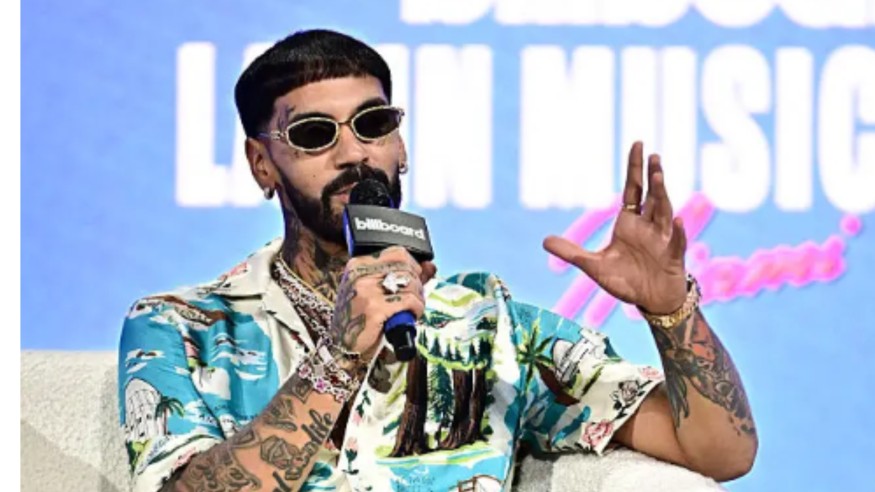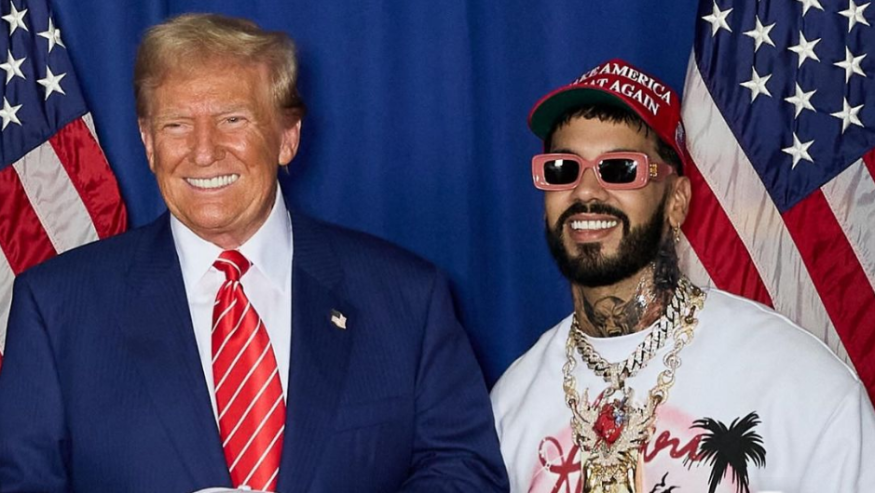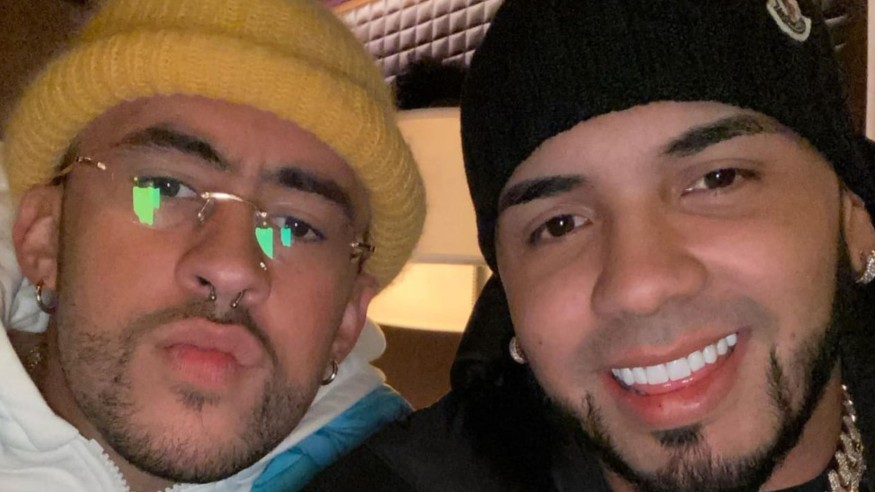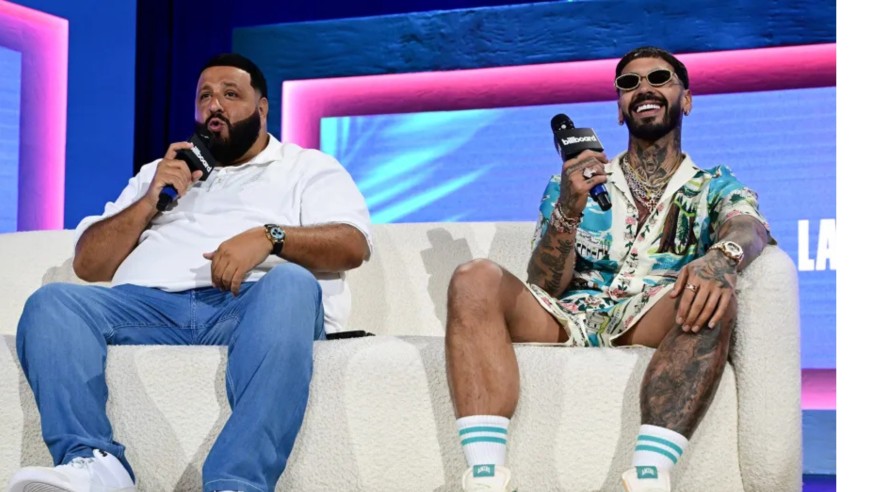Anuel AA Praises Bad Bunny: Did One of Latin Music's Toughest Beefs Ended At Billboard Latin Music Week?

During Billboard Latin Music Week 2025 in Miami Beach, Anuel AA surprised the audience with an unexpected gesture: he publicly praised Bad Bunny , calling his upcoming Super Bowl halftime show "legendary" and "a blessing for Spanish-speaking artists." The statement, made during a conversation with DJ Khaled , lit up the networks and sparked an inevitable question: has one of reggaeton's most notorious rivalries just ended?
When moderator Bryan Pino asked him about Bad Bunny's performance , Anuel responded with unusual serenity. "It doesn't matter if it's in Spanish or English. We love Shakira and Jennifer Lopez, right? Nobody said anything. This is history, and it's a blessing for an artist who sings in Spanish," he expressed.
The comment was brief, but its tone made all the difference. For the first time in a long time, the so-called "God of Trap" didn't sound defiant, but rather respectful.
For attendees of the first day of the week's most important Latin Billboard conferences, the words came as a surprise. On one hand, there's the relationship with El Conejo. On the other, Anuel AA's controversial support for Donald Trump and his apparent endorsement of the MAGA movement.

To understand why this gesture carried such weight, we must review the origins of their shared history. Anuel AA and Bad Bunny emerged together during the rise of Latin trap in the mid-2010s. They represented Puerto Rico's new urban wave: raw, provocative, and free of commercial formulas.
In 2020, they released "Hasta Que Dios Diga," a song that symbolized their brotherhood and the union of trap and reggaeton. But soon after, the relationship cooled. Bad Bunny began experimenting with alternative pop, rock, and electronic sounds, while Anuel reinforced his identity as a "real trapper," averse to trends.

In 2021, tensions became evident. Anuel posted a message on social media mocking men who wear nail polish, a gesture many interpreted as a dig at Bad Bunny. The Bad Bunny, true to form, didn't respond, but the distance between them became palpable.
In May 2024, tensions escalated when, in his song "Toki," featuring Casper Magico, Luar La L, and Izaak, Anuel sings, "Kendall left Bad Bunny for the same reason Cassie left Diddy. Domestic violence?
The situation worsened with the fight between Anuel and Arcángel , another of reggaeton's biggest names. What began as a disagreement escalated into an open social media war, with personal attacks and mutual accusations. "Falsehood," "betrayal," and "two-faced" were some of the phrases that flew between the two. In this context, Bad Bunny took a silent but clear stance: he sided with Arcángel.
During his historic residency in Puerto Rico and his Most Wanted Tour , Bad Bunny invited Arcángel on stage twice , giving him space during the show's most emotional moments. For fans, it was a wordless message: El Conejo had chosen a side. While Bad Bunny strengthened his bond with the reggaeton legends, Anuel became increasingly isolated, defending his vision of authenticity and "street reality."
So when Anuel declared in Miami that "reggaeton didn't open the doors for me, it was hip-hop," many understood it as a reaffirmation of his identity. He mentioned Lil Wayne , Eminem , and Tupac as his greatest inspirations and explained that rap helped him dream of a musical career. "I listened to hip-hop and identified with the lyrics. That's when I first saw the dream," he said.

Although some interpreted these words as a new attack on reggaeton, they actually sounded more like a defense of its essence. Anuel seemed to vindicate himself as a pioneer of Latin trap, an artist who paved the way without depending on the commercial industry. At the same time, he showed respect for Bad Bunny's achievement, recognizing the historic value of his global rise.
His tone was no longer that of the young man who made headlines with fights and controversies, but that of a man more aware of his legacy. The Anuel who spoke in Miami wasn't looking for war, but for vindication. The praise for Bad Bunny, though brief, was an act of maturity and perhaps the first step toward closing a long and turbulent chapter. Or perhaps he's just jumping on the popularity bandwagon. Only time will tell.
Subscribe to Latin Post!
Sign up for our free newsletter for the Latest coverage!















